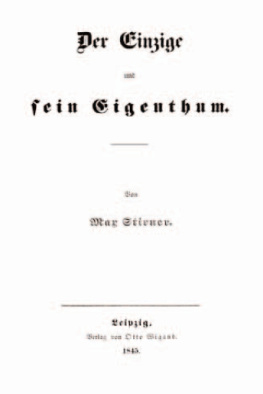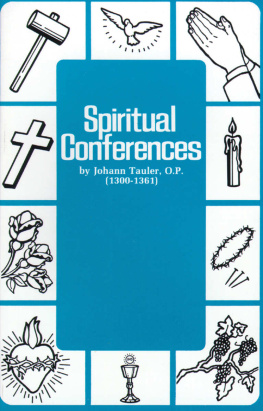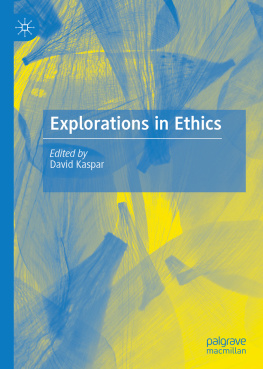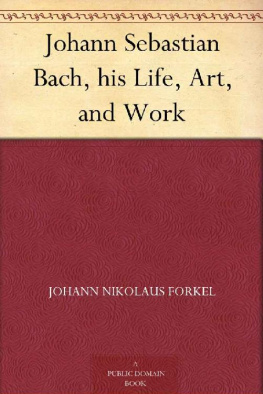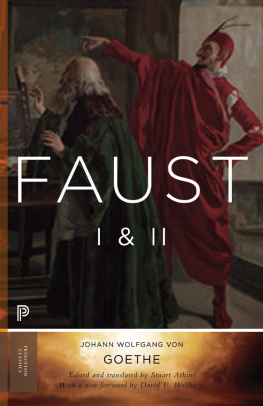Johann Kaspar Schmidt - The Ego and Its Own
Here you can read online Johann Kaspar Schmidt - The Ego and Its Own full text of the book (entire story) in english for free. Download pdf and epub, get meaning, cover and reviews about this ebook. year: 1844, genre: Science. Description of the work, (preface) as well as reviews are available. Best literature library LitArk.com created for fans of good reading and offers a wide selection of genres:
Romance novel
Science fiction
Adventure
Detective
Science
History
Home and family
Prose
Art
Politics
Computer
Non-fiction
Religion
Business
Children
Humor
Choose a favorite category and find really read worthwhile books. Enjoy immersion in the world of imagination, feel the emotions of the characters or learn something new for yourself, make an fascinating discovery.
- Book:The Ego and Its Own
- Author:
- Genre:
- Year:1844
- Rating:3 / 5
- Favourites:Add to favourites
- Your mark:
- 60
- 1
- 2
- 3
- 4
- 5
The Ego and Its Own: summary, description and annotation
We offer to read an annotation, description, summary or preface (depends on what the author of the book "The Ego and Its Own" wrote himself). If you haven't found the necessary information about the book — write in the comments, we will try to find it.
The Ego and Its Own — read online for free the complete book (whole text) full work
Below is the text of the book, divided by pages. System saving the place of the last page read, allows you to conveniently read the book "The Ego and Its Own" online for free, without having to search again every time where you left off. Put a bookmark, and you can go to the page where you finished reading at any time.
Font size:
Interval:
Bookmark:
Johann Kaspar Schmidt

All Your Books Are Belong To Us !
http://c3jemx2ube5v5zpg.onion
Copyright 1844 Johann Kaspar Schmidt
A Reproduction of the First English Edition. Translated from the German by Steven T. Byington. With an Introduction by J. L. Walker. New York. Benj. R. Tucker, Publisher
The work states the individual is dominated by illusory concepts ('fixed ideas' or 'spooks'), which can be shaken and undermined by each individual in order for that person to act fully. These concepts include primarily religion and ideology, and the institutions claiming authority over the individual. According to him, not only is God an alienating ideal, as Feuerbach had argued in The Essence of Christianity (1841), but so too are humanity itself, nationalism and all ideologies. According to Stirner, individuals should only entertain temporary associations between themselves, agreeing in mutual aid and cooperation for a period of time, but only when in each individual's interest (perhaps anticipating cooperative games):
[Ich hab Mein Sach auf Nichts gestellt, first line of Goethes poem, Vanitas! Vanitatum Vanitas! Literal translation: I have set my affair on nothing.]
Luke 11, 13.
Heb. 11. 13.
Mark 10. 29.
[Italicized in the original for the sake of its etymology, Scharfsinn sharp-sense. Compare next paragraph.]
2 Cor. 5. 17. [The words new and modern are the same in German.]
[Title of a poem by Schiller]
[The reader will remember (it is to be hoped has never forgotten) that mind and spirit are one and the same word in German. For several pages back the connection of the discourse has seemed to require the almost exclusive use of the translation spirit, but to complete the sense it has often been necessary that the reader recall the thought of its identity with mind, as stated in a previous note.]
Essence of Christianity
[Or, highest essence. The word Wesen, which means both essence and being, will be translated now one way and now the other in the following pages. The reader must bear in mind that these two words are identical in German; and so are supreme and highest.]
Cf. e.g.Essence of Christianity, p. 402.
[That is, the abstract conception of man, as in the preceding sentence.]
E.g. Rom. 8. 9, 1 Cor. 3. 16, John 20. 22 and innumerable other passages.
[How the priests tinkle! how important they / Would make it out, that men should come their way / And babble, just as yesterday, today! // Oh, blame them not! They know mans need, I say! / For he takes all his happiness this way, / To babble just tomorrow as today. Translated from Goethes Venetian Epigrams.]
Achtzehntes Jahrhundert, II, 519.
De la Cration de lOrdre etc., p. 36.
Anekdota, II, 64.
Essence of Christianity, second edition, p. 402.
P. 403.
P. 408.
[Rousseau, the Philanthropists; and others were hostile to culture and intelligence, but they overlooked the fact that this is present in all men of the Christian type, and assailed only learned and refined culture.]
Die Volksphilosophie unserer Tage, p. 22.
[Called in English theology original sin.]
[Goethe, Faust.]
Anekdota, II, 152.
[Schiller, Die Worte des Glaubens.]
[Parodied from the words of Mephistopheles in the witchs kitchen in Faust.]
John 2. 4.
Matt. 10. 35.
Essence of Christianity, p. 403.
Mark. 9. 23.
[Or citizenhood. The word [das Buergertum] means either the condition of being a citizen, or citizen-like principles, of the body of citizens or of the middle or business class, the bourgeoisie.]
1 Corinthians 8. 4.
Ein und zwanzig Bogen, p. 12
Louis Blanc says (Histoire des dix Ans, I, p. 138) of the time of the Restoration: Le protestantisme devint le fond des ides et des moeurs.
[In German an exact quotation of Luke 10. 7.]
Proudhon (Cration de lOrdre) cries out, p. 414, In industry, as in science, the publication of an invention is the first and most sacred of duties!
[In his strictures on criticism Stirner refers to a special movement known by that name in the early forties of the last century, of which Bruno Bauer was the principal exponent. After his official separation from the faculty of the university of Bonn on account of his views in regard to the Bible, Bruno Bauer in 1843 settled near Berlin and founded the Allgemeine Literatur-Zeitung, in which he and his friends, at war with their surroundings, championed the absolute emancipation of the individual within the limits of pure humanity and fought as their foe the mass, comprehending in that term the radical aspirations of political liberalism and the communistic demands of the rising Socialist movement of that time. For a brief account of Bruno Bauers movement of criticism, see John Henry Mackay, Max Stirner. Sein Leben und sein Werk.]
Br. Bauer, Lit. Ztg. V, 18
Lit. Ztg. V, 26
[Referring to minute subdivision of labor, whereby the single workman produces, not a whole, but a part.]
Lit. Ztg. V, 34.
Lit. Ztg. ibid.
Br. Bauer, Judenfrage, p. 66
Br. Bauer, Die gute Sache der Freiheit, pp. 6263.
Br. Bauer, Judenfrage, p. 60.
[It should be remembered that to be an Unmensch [un-man] one must be a man. The word means an inhuman or unhuman man, a man who is not man. A tiger, an avalanche, a drought, a cabbage, is not an un-man.]
Lit. Ztg., V, 23; as comment, V, 12ff.
Lit. Ztg, V 15.
Rom. 6, 18.
1 Pet. 2. 16.
James 2. 12.
[Parodied from the words of Mephistopheles in the witchs kitchen in Faust.]
[Meaning German. Written in this form because of the censorship.]
Rom 8. 14.
Cf. John 3. 10. with Rom. 8. 16.
Karl Marx, in the Deutsch-franzsische Jahrbucher, p. 197.
Br. Bauer, Judenfrage,, p. 61.
Hess, Triarchie, p. 76.
Essence of Christianity, 2nd ed., p. 401
Mark 3. 29.
[This word has also, in German, the meaning of common law, and will sometimes be translated law in the following paragraphs.]
Cf. Die Kommunisten in der Schweiz, committee report, p. 3.
A. Becker,
Font size:
Interval:
Bookmark:
Similar books «The Ego and Its Own»
Look at similar books to The Ego and Its Own. We have selected literature similar in name and meaning in the hope of providing readers with more options to find new, interesting, not yet read works.
Discussion, reviews of the book The Ego and Its Own and just readers' own opinions. Leave your comments, write what you think about the work, its meaning or the main characters. Specify what exactly you liked and what you didn't like, and why you think so.

